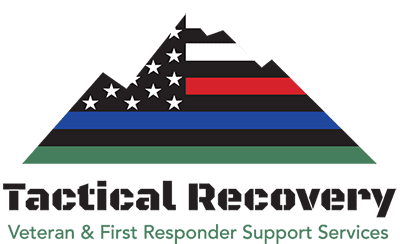Veterans Program
Tactical Recovery is Our Veteran-Ready Program
We understand the long-lasting effects that military service has on both the men and women who have served. Stress, depression, post-traumatic stress disorder (PTSD), military sexual trauma (MST) and substance abuse rates have climbed in recent years. We are honored to partner with the Department of Veterans Affairs Community Care Network and PsychArmor as a Veteran-Ready program providing a full continuum of care to our nation’s Veterans.
The primary goal of treatment is to educate, support, and provide assistance to clients for lasting recovery. Victory has a multi-disciplinary team ready to help clients understand and cope with the issues specific to veterans and work on underlying challenges that will help bring about long-term recovery. Our addictionologist and clinicians will address the substance abuse issues as well as co-occurring conditions the individual may suffer from. Updates on progress will be provided to the Veteran’s care team as preferred, along with collaborative discharge planning to promote optimal outcomes for each individual Veteran and their unique experience.
Click here to download our Tactical Recovery Program Rack Card.
We offer a full spectrum of care for Veterans:
- Medically-Supervised Detox
- 30-90 Day Inpatient Residential Treatment for both male and female veterans
- Intensive Outpatient (IOP)
- Partial Hospitalization (PHP)
- Sober Living opportunities for male clients
- Alumni Services
Program Includes:
- Evidence-Based therapeutic approaches: CBT, EMDR, DBT, mindfulness, REBT, motivational interviewing, CPT, and Seeking Safety
- Weekly Veteran group
- Individualized treatment plans
- 12-Step focused addiction treatment
- Medical and psychiatric oversight
- 24-hour nursing and medical support
- Weekly individual, group, and family therapy
- Comprehensive family program
- Spirituality, meditation, mindfulness, and yoga
Bridge Care
When there isn’t current availability at a VA facility, but a veteran needs immediate help, our Bridge Care program can be the answer. With proper authorization, veterans can start receiving care at our Tactical Recovery program locations until services can be secured at a VA facility. This bridge can support veterans when they need help the most, and start them on the road to recovery sooner.
Offered at all Tactical Recovery locations, Bridge Care offers:
- A temporary supportive environment where veterans can remain safe and sober
- A veteran-centric approach offering trauma-informed care to include a variety of evidence-based practices, proven to be effective in treating the veteran population
- Medically monitored withdrawal management
- Collaborative coordination with VA Medical Centers to ensure a safe bed-to-bed transfer
- A staff of licensed clinicians and medical professionals
- Additional comprehensive levels of care provided as necessary, including residential treatment and outpatient services
Why are Veterans more susceptible to Substance Use Disorders?
Veterans can be more susceptible to substance use disorders for a variety of reasons, with many of these factors stemming from the unique challenges they face during and after their military service. It’s important to remember that not all veterans are susceptible to substance use disorders, and individual experiences and risks vary. However, some of the reasons veterans may be more susceptible to substance use disorders include:
Trauma and Stress: Many veterans have experienced traumatic events during their service, which can lead to conditions like post-traumatic stress disorder (PTSD). To cope with the emotional and psychological toll of trauma, some veterans may turn to substances as a way to self-medicate and numb their distress.
Pain Management: Veterans often experience physical injuries or chronic pain related to their service. Prescription medications, including opioids, are sometimes used for pain management, which can increase the risk of opioid addiction.
Social Isolation: Transitioning from military life to civilian life can be challenging. Veterans may face social isolation, feelings of disconnection, and a loss of the support network they had while serving. Substance use can provide a sense of relief or connection with others.
Lack of Mental Health Services: There is often a shortage of mental health services for veterans, and some veterans may not receive the care they need for mental health conditions, increasing the likelihood of self-medication with substances.
Cultural Factors: Military culture and peer influence can sometimes normalize or even encourage engaging in risky behaviors.
Unemployment and Economic Stress: Some veterans struggle with finding employment and financial stability after leaving the military, which can create additional stress and increase the risk of substance use as a coping mechanism.
Multiple Deployments: Veterans who have experienced multiple deployments may be at greater risk, as they are more likely to have encountered multiple traumas during their service.
Veterans with Co-Occurring Disorders: Some veterans may have co-occurring mental health issues and substance use disorders, further complicating their situation.
Early intervention and access to mental health services are crucial in reducing the risk of substance use disorders among veterans, and many veterans have successfully overcome these challenges with the right support and treatment. Our Tactical Recovery Program is specifically designed to assist veterans, active military and first responders on their journey to recovery.







